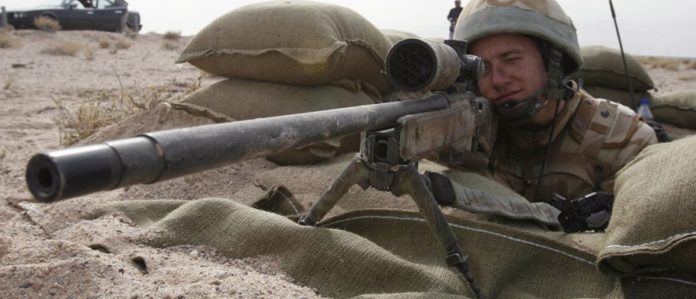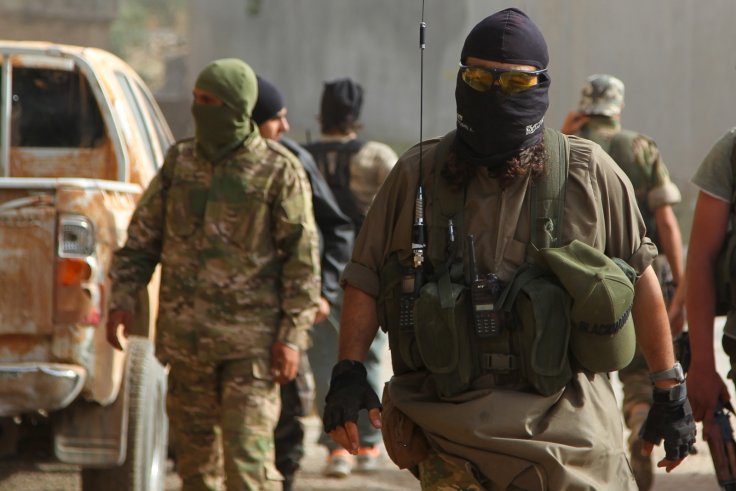
Up to two SAS squadrons of men belonging to the British Special Air Service (SAS), around 120 personnel in all, are operating under US command as part of the Coalition Joint Special Operations Task Force (Operation Shader) inside eastern Syria, to destroy equipment and munitions used by the Islamic State.
“Essentially, this is what we call penny packet operations – small individual incursions which hopefully join up to create tangible results. The view here is long – it’s about finding and engaging targets, yes, but it’s also about assessing infrastructure and identifying where ISIS is hidings its equipment in order to set the conditions for a potentially larger, future engagement,” a senior military source told The Sunday Express.
After Prime Minister David Cameron pledged a ‘broad spectrum’ response to the murder of 30 British tourists by ISIS gunman Seifeddine Rezgui in the Tunisian beach resort of Sousse, the SAS was given ‘carte blanche’ to kill or capture the terror group’s leaders – including the masterminds behind the Tunisian beach massacre.
The soldiers operate mini-drones, scouting the way ahead for targets, assigning and operating in so-called ‘kill-boxes’ – areas of territory in which no coalition airstrikes will take place during the soldiers’ time there. Using a US-developed programme, the UAVs camera system can identify any known High Value Target and digitally transmit the information to the ground for analysis. Over 250 specialists are involved to provide communications support to these ‘smash’ units.
Despite a 2013 parliamentary vote banning military action in Syria, the Royal Air Force joined the US warplanes to carry out combat operations in Syria in 2014. A Ministry of Defence memo, accessed by the charity Reprieve, referred to the embedding of UK personnel in US units as a “gift of service” to make up for manning shortfalls.
“The SAS have been pushing to be more proactive for quite a while. In the past couple of years they have planned a number of operations in Syria when the chemical weapon threat was high but the missions were vetoed at the highest level because of the risks involved. The Tunisian attack has led to a rethink and has speeded up the inevitable use of SF [special forces] against Islamic State,” a senior intelligence source told The Sunday Times.
The Defence Secretary, Michael Fallon, revealed that ministers were considering ordering bombing raids against ISIS strongholds in Syria as early as September because “it was ‘illogical’ for the RAF to be bombing ISIS in Iraq, but not joining the American-led assault on their bases in neighbouring Syria.”
This Article (Secret War: British Special Forces Operating In Syria As ISIS Fighters) is free and open source. You have permission to republish this article under a Creative Commons license with attribution to the author and AnonHQ.com.






Anonymous you are also in a cyber war with Isis. I don’t believe reporting this is being very helpful. Possibly putting SAS TROOPS IN DANGER. as much as I agree with a lot of what you do. This is rather silly
well done thanks for the update that press are 2 scared 2 report on and i agree compltly with it hell give me my laptop and a sa80 and ill go after the cunts